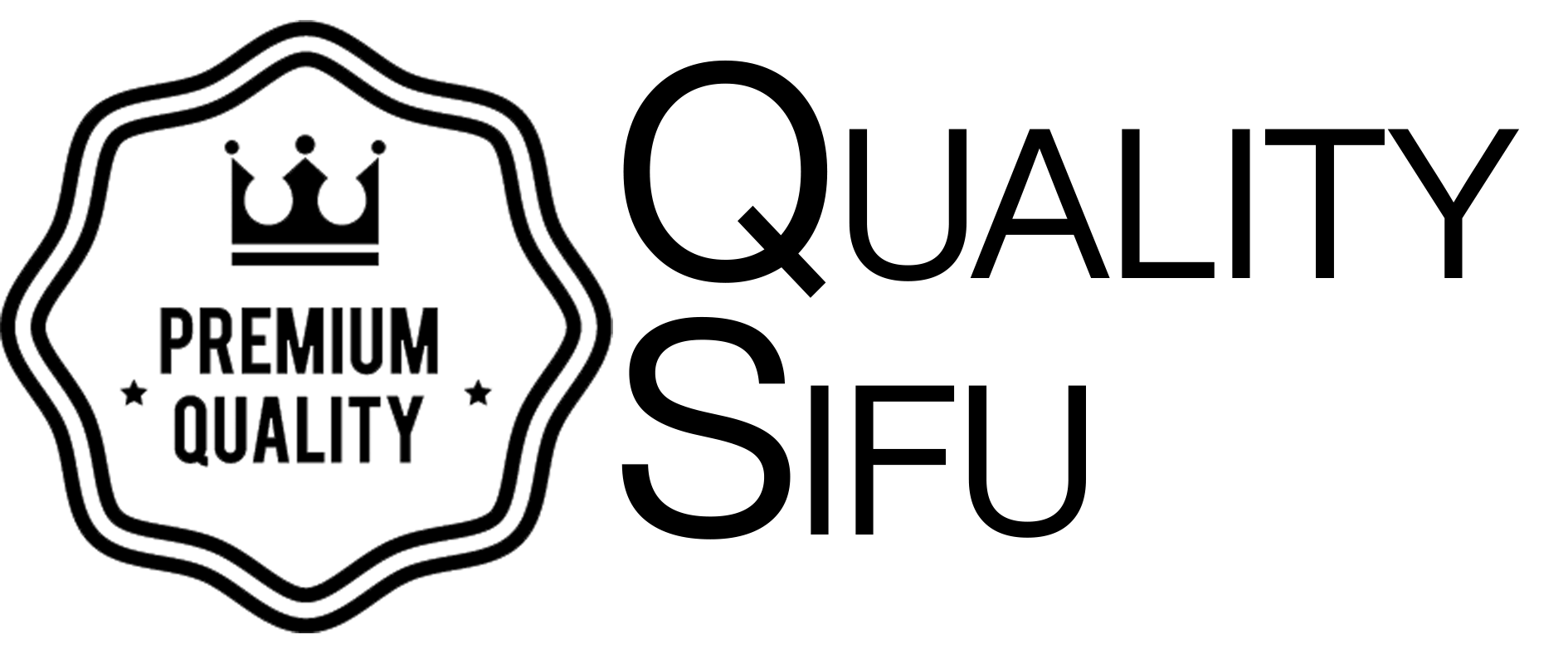A robust control system is essentially the superhero of the chemical industry. It keeps everything running smooth as silk, minimizing risk, and saving both time and resources in production processes. But it doesn’t stop at just averting potential disasters. It also wears the cap of an efficiency enhancer, optimizing operations to perfection. From ensuring safety to boosting operational efficiency, it truly is indispensable. And if you thought that was impressive, just wait until you see what the future holds with advances like smart sensors and AI. Don’t worry, we’ve got plenty more insights to share if you stick around.
Understanding Quality Control
Diving right into the heart of the matter, understanding quality control in the chemical industry is akin to learning a fine dance, where precision, timing, and adherence to the rhythm – or in this case, standards – can make all the difference between a standing ovation and a disaster. It’s like doing the salsa with test tubes and beakers; one wrong move and you might end up with a less-than-desirable concoction, rather than the perfect blend.
Now, let’s debunk some quality control myths that have been making rounds in the industry.
Myth number one – ‘QC is just for the bigwigs.’ Well, surprise, surprise! Even the smallest of chemical enterprises can benefit from implementing QC standards. It’s not about the size, it’s about the quality, folks!
Myth number two – ‘QC is a luxury, not a necessity.’ Let’s be real, in a world where one wrong mix can cause a literal explosion, can we really afford to label QC as a luxury? Implementing QC standards is as necessary as wearing a hard hat on a construction site. It’s non-negotiable!
Lastly, let’s tackle this gem – ‘QC slows down production.’ Well, dear reader, would you rather have a fast but faulty product, or a product that took a bit of time but meets all standards? I thought so!
Role of Control Systems
Buckle up, folks! We’re about to set sail on the sea of control systems in the chemical industry, with a special focus on their role in ensuring process stability and mitigating operational risks.
It’s a bit like walking a tightrope, but don’t worry – these control systems are your safety net!
Ensuring Process Stability
In the bustling world of the chemical industry, the unsung hero ensuring process stability is often the robust control system. It’s like an anonymous superhero; it doesn’t wear tights or a cape, but it keeps the whole operation running smoothly and efficiently.
You see, in the grand theater of chemistry, Process Optimization and Equipment Maintenance are the lead actors, and the control system is the director. It orchestrates every move, every reaction, ensuring the performance is flawless. It’s a maestro, conducting an intricate symphony of reactions, temperatures, and pressures.
And let’s not forget about its role in maintaining equipment. Like a vigilant caretaker, it monitors the health of the machines, alerting us when they start misbehaving. It’s like having a personal trainer for your equipment, making sure it stays in tip-top shape and performs at its peak.
Mitigating Operational Risks
When it comes to dodging the bullets of operational risks, our trusty control system is the secret agent we all need, nimbly navigating through potential pitfalls with the skill of a seasoned professional.
Picture it as James Bond at a black-tie gala, visually scanning for dangers while blending in with the crowd, and looking exceptionally dapper while doing it!
Risk identification is the name of the game here. Our secret agent control system is equipped with an eye for detail, effectively spotting risks that could jeopardize the mission, ahem, I mean, operations.
It doesn’t just identify these risks, oh no, it moves to defuse them, ensuring operational optimization like a pro.
Remember that one scene where Bond disarms a bomb with just seconds to spare? That’s your control system, folks. It optimizes the functioning of your operations so smoothly, it could make a martini (shaken, not stirred, of course) while doing it.
Ensuring Safety in the Industry
While the whirlwind of activity in the chemical industry can be exhilarating, the paramount importance of safety cannot be overstated. It’s like a high-stakes game of Whac-A-Mole, where the moles are potential hazards and the mallet is our unyielding commitment to safety. It’s a game where the prize is the well-being of our workforce and our business – and we’re playing to win.
In this game, safety training is our first line of defense. It equips our people with the knowledge they need to navigate the labyrinth of pipes, valves, and vats that is a chemical plant. It’s like giving them a map to the Minotaur’s maze, complete with a handy legend of which levers not to pull unless they fancy a close encounter with a chemical reaction.
Hazard identification is the second piece of our safety puzzle. It’s like our very own Sherlock Holmes, constantly on the lookout for potential dangers. This involves meticulous examination of every nook and cranny, every valve and vessel, to identify any lurking hazards. It’s not just about finding the hazards, though. It’s about understanding them, knowing their modus operandi, and devising a plan to mitigate them.
Ensuring safety in the chemical industry isn’t just about following rules and regulations. It’s about instilling a culture of safety, where every individual understands their role in maintaining a safe working environment. It’s about turning safety from a chore into a way of life. It’s about making the chemical industry not just a whirlwind of activity, but a beacon of safety.
Reducing Risk With Robust Systems
Every molecule of risk in the chemical industry can potentially be managed by implementing robust control systems, a feat akin to taming a wild, unpredictable beast with the sheer power of science and technology.
Now, who wouldn’t want to be the cowboy in this western flick, reigning in the unruly stallion of risk with the lasso of control systems? Yee-haw!
Systemic vulnerabilities, those sneaky little devils, lurk in the corners of every chemical process, waiting to pounce. Well, robust systems are like the industry’s own superhero, swooping in to the rescue! They identify these vulnerabilities and squash them like bugs, reducing the risk of catastrophic events.
And we’re not just talking about turning a major disaster into a minor hiccup. We’re talking about turning a potential apocalypse into a ‘meh’ situation.
Control system calibrations, on the other hand, are the unsung heroes in this epic battle against risk. They’re like the glasses that the near-sighted need to read the small print on the back of a shampoo bottle. Without them, you could be washing your hair with floor cleaner!
Control system calibrations ensure that our robust systems are running like well-oiled machines, finely tuned to spot and mitigate risk at every turn.
Enhancing Production Efficiency
Beyond the superheroic risk management, robust control systems are the secret sauce to boosting the chemical industry’s production efficiency. And who doesn’t love a good secret sauce, right? It’s the stuff that makes your mouth water and your taste buds do a happy dance. Well, in our case, it’s what makes the production line hum and the output soar.
Automation strategies are the ketchup to your robust control system burger. They work hand-in-hand, like Batman and Robin, to optimize operations and crank up efficiency. By automating repetitive tasks, we allow the machines to do the heavy lifting while your team gets to flex their problem-solving muscles on more complex issues. It’s like having a personal butler who does all the house chores, leaving you free to enjoy your favourite Netflix series. You’re not just improving efficiency, you’re also significantly reducing the chance of human error—and we all know how that can throw a spanner in the works!
Now, let’s talk about predictive maintenance—our crystal ball in the chemical industry. It helps us foresee potential equipment breakdowns, saving us from costly downtimes and the nightmare of production halts. Like a trusted weather forecast, it tells us when to bring an umbrella for a rainy day or sunscreen for a sunny one. Predictive maintenance keeps us one step ahead, ensuring our production lines run smoother than a freshly shaved chin.
In a nutshell, robust control systems, automation strategies, and predictive maintenance are the Avengers of the chemical industry—always ready to save the day and boost production efficiency.
Now, who’s ready to assemble their superhero team?
Importance of Consistent Quality
Switching gears, let’s dive into the meaty subject of consistent quality, an aspect as crucial to the chemical industry as a sturdy shield is to Captain America!
Let’s don the superhero cape and understand why consistent quality is the missing piece of the puzzle that completes our quest for process optimization.
Consistent quality, my friends, is not a jazzy term you toss around at industry cocktail parties. It’s the secret sauce that can make or break your chemical enterprise. It’s the Iron Man to your Avengers, the Han Solo to your Star Wars. So, buckle up! Here’s why:
-
Quality assurance: This is your chemical industry’s lifeline. It’s like having a watchdog that ensures your processes are in check. A consistent quality keeps your customers happy and regulators at bay.
-
Reducing wastage: Consistent quality acts like a magic spell, reducing waste and saving resources. Think of it as your industry’s very own Dumbledore!
-
Brand reputation: Akin to the popularity of a superhero, consistent quality builds your brand’s reputation. It’s your secret weapon for winning the trust of customers and stakeholders.
-
Process optimization: Consistent quality in the chemical industry is the key to process optimization. It’s like having a Swiss Army Knife, providing you with the tools to streamline, improve, and control your processes.
In a nutshell, consistent quality is the genie that grants your chemical industry’s wishes.
Significance of Environmental Compliance
Who knew that being green in the chemical industry was about more than just the color of the chemicals?
But here we are, about to chat about the oh-so-exciting topic of environmental compliance.
From crossing all the ‘t’s with regulators, to making sure Mother Nature isn’t too mad at us, it’s a wild ride, so buckle up!
Ensuring Regulatory Adherence
Navigating the labyrinth of environmental regulations in the chemical industry is no less challenging than a chess game against a grandmaster; however, the significance of compliance is unparalleled.
Now, let’s take a joyride through the regulatory history and the compliance challenges that are as tricky as a Rubik’s cube.
Regulatory history is like a spicy salsa – it adds a zing to the otherwise bland business operations. It has always played the role of a strict school headmaster, setting stern rules for the industry.
Compliance challenges can often feel like wrestling a gorilla. You don’t quit when you’re tired. You quit when the gorilla is tired!
The chemical industry is a tightrope walk. Balancing economic progress and environmental protection is an act worthy of a Cirque du Soleil performance.
Robust control systems are the unsung heroes here, playing the role of a vigilant watchdog, ensuring that regulations are adhered to.
Mitigating Environmental Impact
Let’s face it, reducing the environmental footprint in the chemical industry is as essential as finding the perfect pair of shoes to go with your outfit; it’s not just about looking good, but also about walking responsibly on mother earth!
The chemical industry, like a fashion-forward diva, has to stay ahead of trends. Here, the trend is green chemistry innovations and sustainable manufacturing practices. It’s all about being fabulous while still keeping it real, folks!
Green chemistry and sustainable practices are like the comfy sneakers of industry tactics; they might not seem as exciting as sky-high stilettos, but they’ll get you further in the long run without causing a world of pain.
Practicing green chemistry is like swapping those toxic heels for eco-friendly flats; it’s all about reducing waste and avoiding hazardous substances.
Sustainable manufacturing practices, on the other hand, are like choosing a stylish reusable shopping bag over a single-use plastic one. They’re all about efficient use of resources, minimizing emissions, and designing processes that are safe for the environment.
Cost-Saving Benefits of Control Systems
Delving into the financial perks, control systems in the chemical industry can be quite the coin-saver, offering a plethora of cost-saving benefits that may just make your accountant do a happy dance. If you’re into that sort of thing, who isn’t?
We’re talking about one bad-boy system that can bring about:
-
Inventory Optimization: Think of this as your warehouse on steroids. With a robust control system, you can minimize inventory costs by accurately predicting what you need and when you need it. No more overstocking, understocking, and all those other ‘stocking’ nightmares. Control systems are your new inventory whisperer.
-
Maintenance Scheduling: It’s like having a personal assistant for your machinery, only better. Control systems can schedule maintenance procedures ensuring that everything runs smoothly without those pesky, sudden breakdowns. And let’s face it, nobody likes a party pooper!
-
Decreased Energy Consumption: Control systems can help you cut down on energy usage. You’re not just saving money, you’re saving the planet too. How’s that for a two-in-one deal?
-
Reduced Waste: This one’s a no-brainer. By optimizing processes, control systems help to minimize waste production. Less waste equals less disposal cost. Your wallet and the environment will thank you.
Advances in Chemical Industry Technology
While we’ve been busy singing praises for control systems, the world of chemical industry technology hasn’t been sitting idle, introducing breakthroughs that would make even the most cynical technophobe’s jaw drop. The control freaks among us are in for a treat. Enter Chemical Robotics and Nano engineering advancements. These are not just fancy buzzwords to impress your friends at the next cocktail party but substantial technological leaps, creating a ripple effect across the chemical industry.
Chemical Robotics is like that overachieving cousin who makes everyone else look bad at family gatherings. From reducing human error to enhancing precision in process execution, these robots are revolutionizing the industry one molecule at a time. And if that wasn’t enough, they’ve got a flair for multi-tasking too!
Now let’s talk about Nano engineering advancements. If Chemical Robotics is the overachiever, Nano engineering is the quiet genius. Working in the realm of the ultra-small, nano engineers are manipulating materials at the atomic level to create chemical compounds with enhanced properties.
Here’s a taste of these technologies in a neat table, just to whet your appetite:
| Technology | Description |
|---|---|
| Chemical Robotics | Reduces human error, enhances precision, and excels in multitasking. |
| Nano Engineering | Manipulates materials at an atomic level, creating super compounds. |
These advances, my friends, are not just changing the rules of the game – they’re creating a whole new ball game. So, buckle up and get control of these advancements because the future of the chemical industry is here, and it’s exhilarating!
Case Study: Successful Control Systems
Having whetted your appetite with the latest technological advancements, it’s now time to move from theory to practice with a look at some real-life success stories of control systems in action.
Let’s delve into the world of the chemical industry where control system architecture is nothing less than a superhero saving the day from control system failures.
Here are a few examples that would make even Iron Man a tad bit jealous:
-
The Magic of Modular Design: An international chemical company avoided a potential disaster by implementing a highly flexible control system architecture. This modular approach allowed for speedy adjustments and quick problem-solving, preventing a catastrophic control system failure.
-
The Tale of Timely Troubleshooting: A pharmaceutical firm dodged a bullet when their control system identified an anomaly in the production process. With immediate corrective measures, they saved the day, and possibly a batch of medications.
-
The Story of Seamless Integration: A petrochemical titan managed to integrate their existing control systems with new, advanced platforms. This resulted in increased efficiency and a significant reduction in downtime.
-
The Chronicles of Cost Control: Lastly, a small specialty chemical plant was able to drastically cut costs by optimizing their control system. They reduced waste, improved quality, and enhanced productivity, proving that size doesn’t always matter!
Future of Quality Control Systems
Buckle up, folks! We’re about to embark on a thrilling journey into the not-so-distant future of quality control systems in our beloved chemical industry.
A future where technological advancements and AI are the two musketeers, ensuring that nothing slips through the quality net.
Technological Advancements in Quality Control
Diving headfirst into the future, we find fascinating technological advancements reshaping quality control systems in the chemical industry, making them more accurate, efficient, and, dare we say, almost clairvoyant!
Through the lens of digital transformation, the future of quality control looks like a sci-fi movie. No, we aren’t talking about flying cars or hoverboards. But rather, think of smart systems that can predict potential failures before they happen. Yes, predictive maintenance is not just a buzzword, it’s the reality of tomorrow’s chemical industry.
Now, let’s take a quick tour of the future and see what’s cooking:
-
Smart sensors that monitor the chemical composition in real-time, preventing any ‘Breaking Bad’ scenarios.
-
IoT-integrated systems for continuous data collection and process optimization – no more ‘I forgot to check the pressure level’ excuses!
-
Augmented reality tools for training and troubleshooting – because who wouldn’t want to feel like Iron Man at work!
-
Blockchain technology for secure supply chain management – Say goodbye to counterfeit chemicals!
The Role of AI in Monitoring
‘Get ready to welcome our new robotic overlords,’ I jest, but in all seriousness, the role of Artificial Intelligence (AI) in monitoring and controlling quality systems in the chemical industry is becoming increasingly integral and transformative.
Why, you ask? Well, AI is now the hotshot chemist in town, ensuring our concoctions are up to snuff, and – dare I say it – even better than before. It’s like having a personal Jeeves, only smarter and never needing a tea break.
But don’t shelve your lab coats just yet. With great power comes great responsibility, or in our case, AI integration challenges. Yes, my friends, it’s not all rainbows and unicorns in AI land.
Fear not, though. The benefits far outweigh the hiccups. Imagine the predictive maintenance benefits. No more sudden shutdowns or surprise equipment meltdowns. AI’s got your back, predicting problems before they happen. It’s like having a crystal ball, only less mystical and more scientific.
Overcoming Challenges in Implementation
Navigating the labyrinth of implementation challenges in robust control systems within the chemical industry can be quite a roller coaster ride, but rest assured, there’s a method to this madness. Between control system drawbacks and the migraine-inducing implementation cost analysis, it’s enough to make you want to trade in your lab coat for a simpler life, like herding llamas in Peru.
But fear not, my chemical industry comrades, for there’s a light at the end of this seemingly endless tunnel of pH meters and autoclaves. Let’s break it down, shall we?
-
Control system drawbacks: Yes, they exist. No system is perfect. But we’re not striving for perfection here, we’re striving for improvement. And that’s a win in my book!
-
Implementation cost analysis: You may need to sell a kidney, but remember, you still have another one. It’s the cost of doing business, folks!
-
Staff training: It’s a no-brainer that new systems need new skills. So, roll up those sleeves and start learning – it’s never too late!
-
System integration: This could be a tricky one. But remember, Rome wasn’t built in a day, and neither will your control system.
At the end of the day, it’s all about control. And who doesn’t love control? It’s like being the captain of your own ship, navigating through the stormy seas of the chemical industry. So, buckle up, hold onto your hats, and let’s conquer these implementation challenges together!
With a robust control system, we’re not just surviving – we’re thriving!
Conclusion
In conclusion, robust control systems are an indispensable aspect of the chemical industry, acting as the backbone of safety and efficiency. Advances in technology are ushering in more sophisticated control systems, setting new quality standards.
While implementation challenges persist, the benefits far outweigh them, making the journey towards robust control systems an essential venture for the chemical industry.
The future, indeed, looks promising with robust control systems at the helm.






